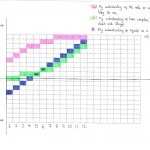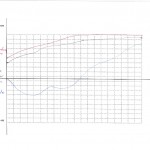I mentioned today that schools are modelled on industrial era and factories. Probably didn’t make a lot of sense. So here’s a simple way to understand this. You’re in Year 7. The Year 7 says the maths curriculum is x, English y, and so on. But most students are variable in their abilities and where they are up to. That 13 year old actually gets on better with 11 year olds. That 13 year old finds English easy (and so is bored), but the maths very hard, and so struggles and feels, well, incompetent. Ideally, this student isn’t a ‘Year 7’ student. They should be doing an english student with people at level whatever (higher than Year 7) and maths with people at level x, which is probably lower than the Year 7 average. But school’s can’t do this. At the end of they year you will find yourself in Year 8, with a new English and maths curriculum. You might still find English unchallenging, and end up even further behind in maths. The structure of the system just can’t accommodate how we actually learn, it’s designed around 4 classes of Year 7, 8, 9, etc, most progressing through, with no ability to let those doing really well in Maths do more, or even teach those struggling, and same for English and other subjects. It is, basically, a single speed system. Yet we all know that we learn different things at different speeds. Some schools can do this, they’re quite radical in their educational approach, but it is perfectly doable.
learning
Confusion Rains
From an email I have just read based on a recent The Chronicle of Higher Education comes:
Steve Kolowich, in “Confuse Students to Help Them Learn”, uses the example of a physics teacher who by trying out clear versus ambiguous presentations discovered that “if you just present the correct information, five things happen…. One, students think they know it. Two, they don’t pay their utmost attention. Three, they don’t recognize that what was presented differs from what they were already thinking. Four, they don’t learn a thing. And five, perhaps most troublingly, they get more confident in the ideas they were thinking before.”
Let’s Remove This Concept?
To begin with think of it as an ecosystem, and then there really isn’t competition (the idea that nature is a competition was understood to be wrong in about 1960). So we aren’t really competing in any way, academically or otherwise (there is no rule that says only 10% can get mark x).











